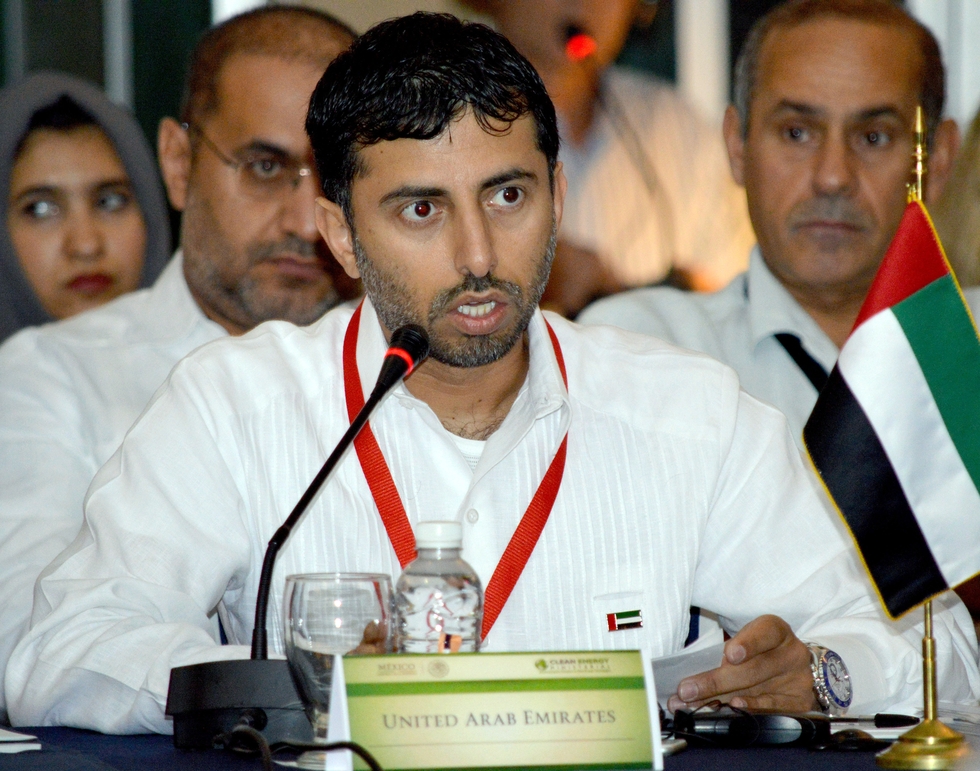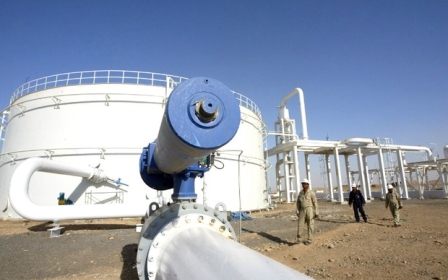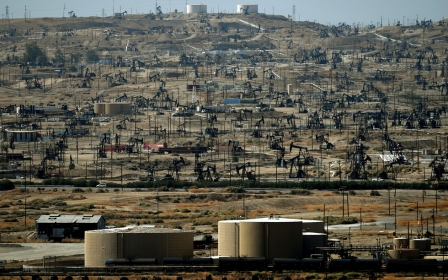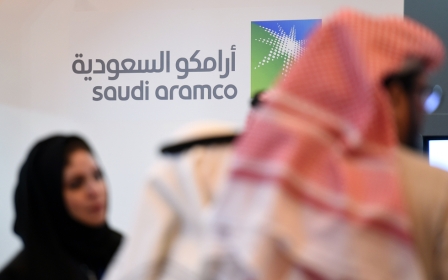Oil prices soar based on UAE tweet

CORRECTION: A photo with a previous version of this story showed former Libyan oil minister Abdullah Al Badri, not UAE oil minister Suhail Al Mazrouei. MEE regrets the error.
Oil prices soared on Friday, with US crude rebounding from a 2003 low, on reports that OPEC was willing to organise output cuts that could ease the global oversupply.
A big catalyst was a Wall Street Journal report that United Arab Emirates oil minister Suhail Al Mazrouei had said the OPEC cartel was willing to cooperate with other producers on trimming crude output.
The report was apparently based on a reporter's tweet of the minister's interview with Sky News Arabia. But it was enough to spark a huge turnaround in the market.
US benchmark West Texas Intermediate for March delivery shot up $3.23 (12.3 percent) to $29.44 a barrel on the New York Mercantile Exchange.
Brent crude for April delivery, the European benchmark, finished at $33.36 a barrel in London, up $3.30 (11 percent) from Thursday's settlement.
James Williams of WTRG Economics, a forecasting and data company for oil producers, discounted the report.
"We have another series of rumours about OPEC based upon a comment out of UAE and another attempt to support prices out of Venezuela, which has scaled back its requests and is just asking for OPEC and non-OPEC exporters to agree not to increase production," he said.
Bart Melek of the Canadian investment bank TD Securities said a six percent drop in US crude oil drilling activity reported by Baker Hughes had also reinforced sentiment.
The US rig count fell by 28 to 439 last week, as low as it was in 2010, Melek said.
"So ultimately we should expect lower production ... and with lower production in the US, it's more likely Saudi Arabia and other OPEC members might want to decrease output."
New MEE newsletter: Jerusalem Dispatch
Sign up to get the latest insights and analysis on Israel-Palestine, alongside Turkey Unpacked and other MEE newsletters
Middle East Eye delivers independent and unrivalled coverage and analysis of the Middle East, North Africa and beyond. To learn more about republishing this content and the associated fees, please fill out this form. More about MEE can be found here.




